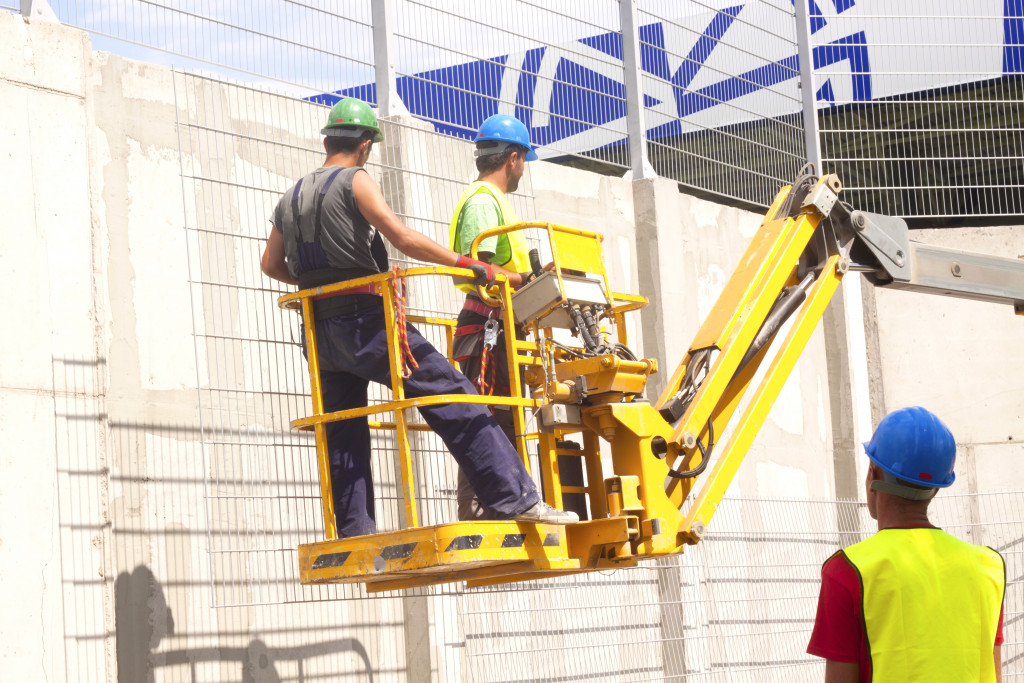- The construction industry is dynamic, making it crucial for companies to keep abreast of evolving legal responsibilities.
- Firms must adhere to safety and employment laws, environmental regulations, contractual obligations, and intellectual property rights.
- Non-compliance to safety measures, employment laws, and environmental practices can have severe legal and financial consequences.
- Understanding contractual obligations and respecting intellectual property rights is vital to avoiding litigation and reputational damage.
- Effective methods to remain updated with regulations include safety training and maintaining open communication with clients.
As the construction industry continues to evolve, so do the legal responsibilities that come along with it. As a construction firm owner, it’s important to stay up-to-date on the latest laws and regulations that you must abide by. This ensures compliance and helps protect your business from potential legal ramifications. Here’s what you need to know about the industry, the growing legal responsibilities firms have today, and how to ensure your firm can keep up with changing regulations.
The Construction Industry Today
It’s estimated that the construction industry is worth about six trillion dollars. This means there’s a lot of opportunity for contractors and construction firms to grow their businesses—but also a lot of competition. As the industry progresses, companies must find ways to differentiate themselves from other firms to stay ahead.
Growing Legal Responsibilities
With the ever-changing regulations in the construction industry, you must know your responsibilities as a firm. Here are some of them:

1. Safety Regulations
Safety is a top priority in the construction industry and for good reason. There are strict safety regulations in place to protect workers and the public from harm. As a construction firm owner, you must ensure that your job sites are safe and that all appropriate safety measures are in place.
This includes providing personal protective equipment, conducting regular safety meetings, and following proper procedures for handling hazardous materials. Failing to comply with safety regulations can result in fines and legal action.
2. Employment Laws
As an employer, you are legally responsible for providing your employees a safe and fair workplace. This includes complying with federal and state employment laws and regulations, such as minimum wage and overtime rules, anti-discrimination laws, and workers’ compensation requirements. Failing to comply with these laws can result in expensive lawsuits and damage your company’s reputation.
3. Environmental Regulations
Construction activities can have a significant impact on the environment. As such, numerous regulations are in place to ensure that construction firms exercise due diligence in protecting the environment. This includes obtaining necessary permits and complying with regulations related to stormwater control, hazardous waste management, and air emissions. Violations of environmental regulations carry significant legal and financial repercussions, so it’s essential to ensure you comply.
4. Contractual Obligations
Construction firms often operate under complex contractual agreements, and it’s essential to understand your legal obligations under these agreements fully. Failure to comply with contractual obligations can result in costly disputes and litigation. Ensure you thoroughly review and understand the terms of all contracts before signing them, and seek legal advice if necessary.
5. Intellectual Property Rights
The construction industry is a heavily regulated sector subject to numerous copyright, patent, and trademark laws. As a construction firm owner, you have a legal responsibility to respect the intellectual property rights of others. This includes ensuring that all the materials and designs used on your construction projects are appropriately licensed and do not infringe on the rights of others. Failing to comply with these laws can result in expensive litigation and damage your company’s reputation.
How Your Firm Can Keep Up
As a firm, you must keep up with these regulations when possible. Here are three practical ways to do that:

Safety Equipment And Fall Training
It’s costly to have accidents happening on your sites since you are responsible for them. The most common reasons for these accidents are falls. That’s why you need to have understandable rigging hook safety guidelines. These guidelines can help you teach employees the proper techniques for safely using the rigging equipment and can drastically reduce the risk of falls.
You should also provide safety training on fall protection measures. This will ensure that all personnel on your job sites understand how to protect themselves from potential falls.
Staying Updated With Employment Laws
Staying updated with employment laws is essential for any construction firm owner. Be sure to take the time to familiarize yourself with all applicable laws and regulations, and consult a lawyer if you have any questions or concerns. It’s also essential to keep your employee handbook up-to-date and ensure that all employees know their rights and obligations as outlined in it.
Open Communication With Clients
Open communication between you and your clients is key to staying on top of changing regulations. Make sure to send regular updates regarding any changes in the industry and any legal information related to the project. This will keep both parties informed and ensure compliance with all applicable laws and regulations.
By taking the necessary steps to stay up-to-date on the latest laws and regulations in the construction industry, you can protect your business from potential legal ramifications. These practices will also help ensure that your firm complies with all applicable rules and regulations, so you can focus on completing projects.
